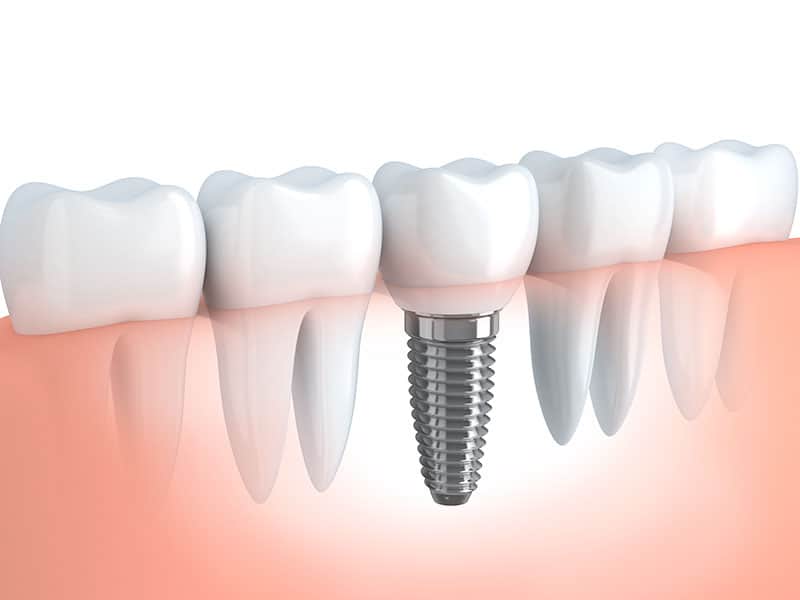Who can receive dental implants?
Not everyone’s teeth have the same lifespan. Besides genetics, several other factors can affect the longevity of teeth. Poor nutrition, cavities left untreated, and not seeing your dentist regularly are all factors that can contribute to tooth loss.
Dental implants: the necessary conditions
Tooth loss isn’t always a calamity. Dental implants make it possible to replace missing teeth — including roots — with minimal side effects.
To be able to benefit from dental implants, certain criteria need to be met: good overall health is essential as well as healthy gums and a sufficiently thick bone base in the jaw. Also, the jaw bone must have fully finished growing.
Uncontrolled diabetes and heart disease present risks during surgery. That’s why it’s important for the dentist to be aware of the patient’s condition before the operation.
The dentist will first carefully evaluate the patient’s mouth and take x-rays of the head, jaw, and teeth to determine if he or she is able to receive the dental implant.
Bone grafting
If the jaw bone isn’t thick or solid enough to hold the implants, there’s a solution: bone grafting. The purpose of grafting is to increase the bone volume of the jaw in case it has decreased or is naturally thin; this will enable it to hold implants.
Bone grafting consists of an operation to reconstitute the alveolar bone (the bone into which the roots of the teeth are set). The dental surgeon grafts bone onto the deficient area. The bone can be taken from the patient or from an external donor; or it can also be synthetic. The source of the graft is determined by the dentist based on the needs of the patient and the resources available.
Contact us for more information about dental implants.




